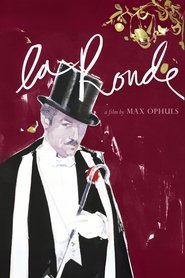— I adore the past. It’s so much more restful than the present and so much more certain than the future.
Spinning on the carousel of life, La Ronde is a reminder that 'innocent' and 'charming' doesn't always mean childish. This rich dessert of a film is probably not for everybody (and probably not even for me at every moment...), but it is the perfect film for this particular "You know what...? Sure, why not, yes, please do bring over the dessert cart, my man." kind of moment. Saying that, I'll always be nostalgic for the nostalgia towards the Belle Epoque...
Though men want one thing only, they never want it from the same woman, and vice versa; the dance obliges everyone to change partners. In this unsparingly disenchanted vision, copulation even lacks discernible purpose. The characters don’t seem to have sex so much as sex has them.[…]
Even in 1950, when the film was being shot, Schnitzler’s [original] material had ceased to be obscene; indeed, it was already in the dismal condition of what used to be sexy. Ophuls develops La Ronde‘s great poetry not around desire, therefore, but around the anhedonia of a world in which desire survives only as an antique sign of itself, a memorial tombstone laid over its grave.
[…]
We chuckle complacently when the camera cuts [to] a shot of [Walbrook], with celluloid and scissors, supposedly editing out of the film the couple’s further progress. Not at all aroused by the sex scene in the first place, we don’t feel in the least cheated when it is truncated. The act of censorship only tells us, of palpable eroticism, how little there would ever be to censor in La Ronde. But though this sequence does not sexually excite or frustrate us, it does do something for which our biddable laughter offers thanks: it flatters our sexual sophistication.
[…]
[Walbrook's] is the bright-eyed/indrawn face of one who must enliven the ronde with his wit and taste, but remain on its perimeter, excluded from participation; the fascinated/bored look of one who must always be just looking, whose erotic options are restricted by the ronde to self-monitoring narcissism or servile voyeurism; the commanding/cowed attitude of one who takes vengence on the ronde with his irony, half spiteful, half serene, and refuge from it in his impeccable, or embarrassing, but in any case unassimilable style. It will always seem reductive to see the [character], through Walbrook’s performance, as “gay.” But how much more reductive not to see it, to see only the ronde instead of La Ronde.
— D. A. Miller (Film Quarterly)
Synopsis: An all-knowing interlocutor guides us through a series of affairs in Vienna, 1900. A soldier meets an eager young lady of the evening. Later he has an affair with a young lady, who becomes a maid and does similarly with the young man of the house. The young man seduces a married woman. On and on, spinning on the gay carousel of life.

